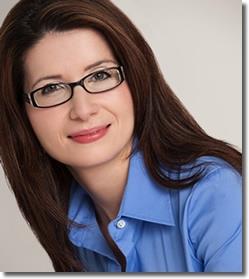Everyone in the Faculty of Education are invited to attend a talk by Professor Jacqueline Leighton!
Creating Classroom Conditions for Higher-Order Thinking and Informative Assessment:
The Learning Errors and Formative Feedback (LEAFF) Model
Tuesday, March 25, 2014
10:00 – 11:30 a.m.
Scarfe 310
Learners are socialized from a young age to both aspire and avoid certain outcomes within academic environments. Aspirations include high grades and labels such as “intelligent” and “smart.” Avoidance includes all kinds of errors and labels of “not knowing” and “not being bright.” Students’ efforts at masking their errors are particularly problematic because understanding the origins of errors and unraveling their causes are gateways to deeper cognitive processing and learning. In this presentation, the LEAFF model is introduced, along with empirical support, for guiding instructional interventions to increase (1) students’ experience of safety and well-being within the learning environment and (2) students’ propensity to identify errors in their understanding. It is proposed that when students feel at ease in their learning environment and can identify potential for errors, their uptake of formative feedback is enhanced, thinking and learning are deepened, and the validity of assessment-based inferences are strengthened.
Interested to attend? Please RSVP to Dr. Kadriye Ercikan.
 Jacqueline Leighton is Professor and Chair of Educational Psychology and past Director of the Centre for Research in Applied Measurement and Evaluation (CRAME) at the University of Alberta.
Jacqueline Leighton is Professor and Chair of Educational Psychology and past Director of the Centre for Research in Applied Measurement and Evaluation (CRAME) at the University of Alberta.
Dr. Leighton’s research is focused on measuring the cognitive and emotional processes underlying learning and assessment outcomes, and feedback delivery and uptake. Funded by NSERC and SSHRC, Dr. Leighton completed her graduate and postdoctoral studies at the University of Alberta, and Yale University, respectively. She publishes in educational measurement journals, is past editor of Educational Measurement: Issues and Practice, and has published 3 books with Cambridge University Press. She has served as member of research and technical advisory boards for the American Institute of Certified Public Accountants, College Board, and Puerto Rico State Assessment Systems.